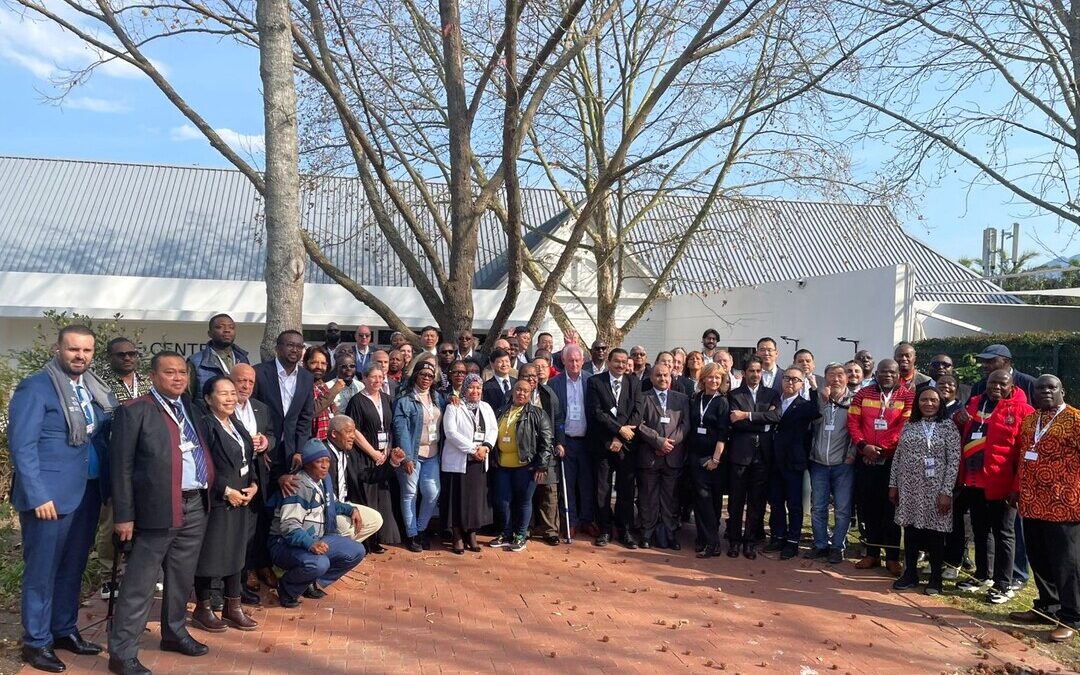L20 Summit Urges G20 to Back New Social Contract for Workers
Trade unions urge G20 leaders to prioritize wage growth, decent jobs, and social protection to curb global inequality.
Trade union leaders from the Group of 20 nations and beyond have called for a new social contract aimed at reducing global inequality, promoting decent work and strengthening labor rights, during the Labour 20 Summit held in George, South Africa.
Held July 28–29 under the theme “Fostering Solidarity, Equality and Sustainability through a New Social Contract,” the summit brought together union leaders to outline policy priorities and urge stronger cooperation with G20 governments ahead of the Labour and Employment Ministers’ Meeting.
Focus on Inequality, Decent Work and Just Transition
Participants discussed a range of issues affecting workers, including the impact of trade conflicts, the challenges of informality and precarious work and the role of digitalization and artificial intelligence in shaping future labor markets.
The summit emphasized the need for an industrial policy that supports a Just Transition and the expansion of decent work.
During a high-level dialogue session, union representatives met with G20 labor ministers and senior officials to push for measures to fight inequality, boost wage growth, and raise labor’s share of GDP.
The panel included the South African Deputy Minister of Employment, the U.K. Minister of State for Work and Pensions, the German State Secretary of Labor and representatives from France and the International Labour Organization.
Speakers highlighted national strategies to promote living wages, improve women’s labor participation and tackle youth unemployment.
G20 governments were urged to prioritize policies that support social protection, strong wage-setting mechanisms and labor rights.
The L20 concluded the summit with a joint statement titled “A Worker-Centred Agenda for Global Equity and Justice.”
Trade Unions Deliver Message to G20 Ministers
An L20 delegation presented its demands at the G20 LEMM held July 30–31, reiterating calls for immediate action on poverty, informality and inequality.
“All of us here—trade unions and governments—have the same responsibility: to respond immediately to workers’ everyday problems,” said Luc Triangle, general secretary of the International Trade Union Confederation. “Strong unions and collective bargaining are essential tools to guarantee these policies are effective and sustainable.”
COSATU President Zingiswa Losi stressed the shared responsibility to reduce inequality: “Decent job creation, social dialogue, collective bargaining and living wages are proven pathways to more just and equitable societies.”
The G20 meeting concluded with the presentation of a joint L20-B20 statement and the adoption of the G20 Labour and Employment Ministerial Declaration.
G20 Ministers Adopt Targets on Youth and Gender
Trade unions welcomed the G20 declaration, which reaffirms commitments to decent work and reducing inequality in the labor market.
It includes measures to strengthen social protection, uphold labor rights, and improve education-to-work transitions through investment in vocational training and apprenticeships.
The declaration also unveiled two new benchmarks:
- Nelson Mandela Bay G20 Youth Target: Aims to reduce the share of young people not in education, employment or training by 5 percent by 2030.
- Brisbane–EThekwini Goal: Extends the G20’s pledge to narrow the gender gap in labor force participation by 25 percent by 2030.
In a further step, ministers committed to reduce the gender wage gap by 15 percent by 2035, with a midterm review to consider increasing the target to 35 percent.
The declaration acknowledged the critical role of collective bargaining, freedom of association, and responsible business conduct in achieving fair labor practices and transparency in global supply chains.
Living Wages Absent From Final Text
While welcoming many of the declaration’s provisions, trade unions criticized the omission of an explicit commitment to living wages.
“It is positive that the declaration included commitments to promoting wage-setting mechanisms and minimum wage protections,” said Veronica Nilsson, general secretary of the Trade Union Advisory Committee to the Organisation for Economic Co-operation and Development. “However, we regret the failure to include a strong reference to living wages—an essential tool for reducing inequalities and achieving social justice.”
Nirmal Menon
Related posts

Subscribe
Error: Contact form not found.


